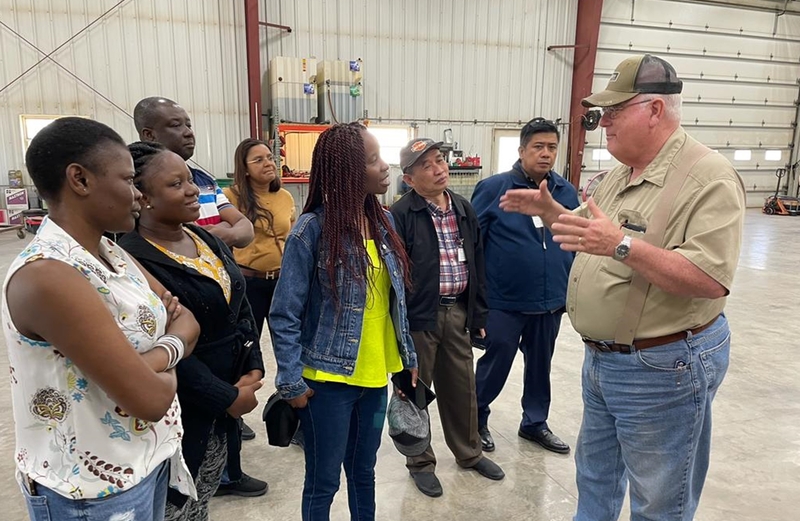Michigan State University Builds the Capacity of African Delegates on Agricultural Biotechnology and Biosafety

According to experts, Africa is currently the only food-insecure continent and at the same time the continent that harnesses fewer technologies and innovations to improve its agriculture. In this regard, building the capacity of African stakeholders in agricultural innovations such as biotechnologies and other emerging gene technologies may help change the food and nutrition narrative in the continent.
In light of the above reality, the African Union Development Agency-NEPAD in partnership with The World Technology Access Program in Michigan State University’s College of Agriculture and Natural Resources, and other institutions, held a two-week-long International Short Course in Agricultural Biotechnology and Biosafety from August 6 – 18, 2023. Thirty-four participants from 10 African countries namely Ethiopia, Ghana, Kenya, Malawi, Mozambique, Namibia, Nigeria, South Africa, Zambia, and Zimbabwe, and 5 Asian countries, Bangladesh, India, Indonesia, Philippines, and Vietnam attended the programme.
The training brought together delegates from diverse backgrounds, including biosafety regulators, policymakers, research scientists, academia, lawyers, communication specialists, and representatives from international centers and non-governmental organizations.
The course featured speakers from relevant U.S. government regulatory agencies, academia, three seed and biotech companies and two non-profit organizations, Michigan Crop Improvement Association and Donald Danforth Plant Science Center. The participants also toured research laboratories, greenhouses, a confined field trial, and demonstration plots, and they had the opportunity to interact with local farmers in Michigan and Iowa.
International experiences in biotechnology and biosafety in Europe, Asia, and Africa were shared through virtual presentations from representatives of International Plant Biotechnology Outreach (IPBO), Ghent University, Belgium, International Institute of Tropical Agriculture (IITA), and Farming Future Bangladesh. While in Washington, D.C., two special panels were organized with U.S. regulatory agencies and biotech industry representatives across the value chain. Representatives from the USDA-Foreign Agricultural Service (USDA-FAS) shared experiences and policies on international trade issues as they relate to biotechnology products. The African perspective on international negotiations on biotechnology products was shared by the Head of the AUDA-NEPAD’s biosafety division, ABNE.
The program provided opportunities for each of the 15 countries to share their experiences and perspectives on biotechnology and biosafety. Key issues that emerged from country presentations included the need for greater outreach and communication, building functional regulatory policies on genome-edited crops, and increased support on legal issues and court cases related to biotechnology products. Building on these issues, a novel idea emerged to establish a global platform for enhanced science communication to build greater awareness and education of stakeholders and the general public on emerging science and technologies.
The training aligns with African Union Agenda 63 Aspiration 1 which envisions “a prosperous Africa based on inclusive growth and sustainable development, and Goal Number 5, which targets “Modern agriculture for increased productivity and production.”



